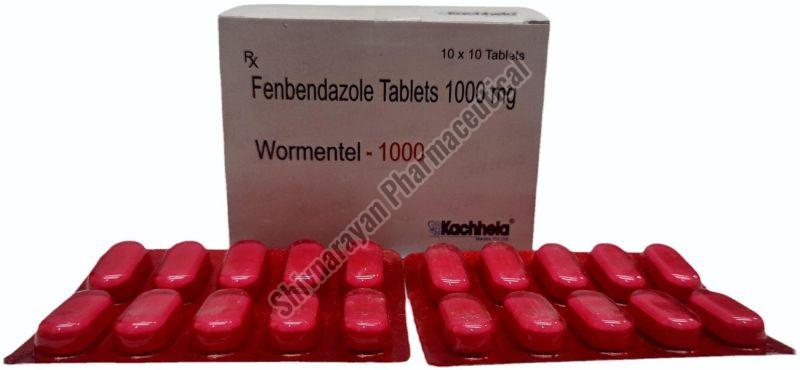fenbendazole capsules vs Other Dewormers: Which is Better?
Wiki Article
Recognizing the Perks and Uses of Fenbendazole in Vet Medicine
Fenbendazole has actually developed itself as a vital anthelmintic in vet medication. Its ability to target different parasitical infections makes it a beneficial tool for veterinarians. The medication's device disrupts vital cellular processes in parasites, leading to efficient therapy outcomes. Nonetheless, its safety profile ranges varieties, necessitating mindful factor to consider in its usage. Recognizing these dynamics can shed light on fenbendazole's wider implications in vet care and recurring study right into its prospective beyond typical applicationsMechanism of Activity of Fenbendazole

Common Parasitic Infections Dealt With With Fenbendazole
A range of parasitic infections are effectively treated with fenbendazole, making it a functional option in veterinary medication. This anthelmintic agent is specifically effective against nematodes, including roundworms and hookworms, which generally influence pets and pet cats. It is likewise utilized for the treatment of cestodes, such as tapeworms, providing a wide spectrum of activity against both sorts of digestive bloodsuckers. Additionally, fenbendazole is valuable in handling infections triggered by protozoa, particularly Giardia, which can cause intestinal distress in animals. Its efficiency encompasses treating particular lungworms in dogs and felines, addressing respiratory wellness worries linked to these parasites. Overall, fenbendazole's capacity to target several parasitical types makes it a useful device in veterinary technique, guaranteeing the health and health of family pets affected by these typical infections.Safety and security and Efficacy in Different Animal Types
The safety and security and effectiveness of fenbendazole differ amongst different animal varieties, underscoring the value of species-specific considerations in veterinary medicine. In canines, fenbendazole is generally well-tolerated and efficient against a variety of intestinal bloodsuckers, consisting of roundworms and hookworms. For felines, nevertheless, its usage is much less usual and might need mindful application due to prospective unfavorable responses.In livestock, such as cattle and lamb, fenbendazole shows performance versus numerous endoparasites, adding to boosted wellness and efficiency. The pharmacokinetics and prospective side results can vary significantly in between varieties, demanding careful evaluation by veterinarians.
Equines additionally react positively to fenbendazole, particularly for dealing with strongyles and ascarids, though dose and management paths have to be tailored to their unique physiology. Subsequently, understanding these differences is vital for maximizing therapy outcomes and guaranteeing animal well-being throughout diverse varieties.
Management and Dose Standards
Proper management and dose guidelines are vital for making best use of the healing impacts of fenbendazole while minimizing possible negative effects. The dosage normally differs relying on the species being dealt with, the particular problem, and the click now formulation of fenbendazole utilized. fenbendazole 444. For canines and felines, a common dose is 50 mg/kg body weight, administered daily for three successive days, however vets might adjust this based upon individual health assessmentsIt is essential to administer fenbendazole with food to boost absorption and decrease intestinal trouble. The medication Go Here is available in numerous kinds, consisting of granules and paste, enabling versatile management options. Keeping an eye on the pet's action throughout and after therapy is a good idea to confirm effectiveness and security. In addition, veterinary support is essential to determine the suitable period of treatment based on the kind of parasitic infection being addressed, ensuring optimal end results for the animal's health.
Future Perspectives and Study on Fenbendazole
Research study on fenbendazole continues to develop, concentrating on its possible applications beyond traditional antiparasitic usages. Current studies have discovered its effectiveness in dealing with numerous types of cancer, specifically in veterinary oncology. Initial information recommend that fenbendazole might prevent the growth of growth cells and boost the effects of other chemotherapeutic representatives.Researchers are investigating its role in handling gastrointestinal conditions in animals, highlighting its anti-inflammatory homes. The versatility of fenbendazole for different species questions concerning its safety profiles and suitable dosing regimens in varied populations.
As interest expands, there is a demand for detailed scientific trials to establish evidence-based standards for these unique applications. Future study may also explore the systems behind fenbendazole's effects, potentially leading the way for innovative healing approaches in vet medicine. The recurring expedition of fenbendazole might considerably boost treatment choices for different veterinary conditions.

Regularly Asked Inquiries
Is Fenbendazole Safe for Pregnant Animals?
The safety of fenbendazole for pregnant pets stays unclear. While some research studies recommend very little risk, vets generally recommend caution and usually recommend versus its use throughout pregnancy unless the advantages clearly exceed possible risks.Can Fenbendazole Be Made Use Of in Animals?
Fenbendazole is commonly made use of in animals to deal with different parasitic infections. 222 mg. Its efficiency versus stomach worms makes it a useful anthelmintic, adding to boosted health and efficiency in pets elevated for food and fiberWhat Are the Negative Effects of Fenbendazole?

The negative effects of fenbendazole might consist of intestinal disturbances, sleepiness, and allergic reactions. In rare situations, much more extreme responses could occur, requiring cautious monitoring and webpage consultation with a vet throughout therapy.
Exactly How Does Fenbendazole Contrast to Various Other Dewormers?
Fenbendazole uses broad-spectrum effectiveness against various parasites, usually contrasting positively to various other dewormers. Its special system targets different life stages, making it reliable, while normally providing a positive security profile contrasted to alternatives offered on the marketplace.Can Fenbendazole Be Utilized for Dealing With Cancer in Pets?
The possibility of fenbendazole in treating cancer cells in animals has actually amassed passion. Preliminary research studies recommend it may hinder cancer cells cell development, however further research study is necessary to verify its effectiveness and safety in vet oncology.Report this wiki page